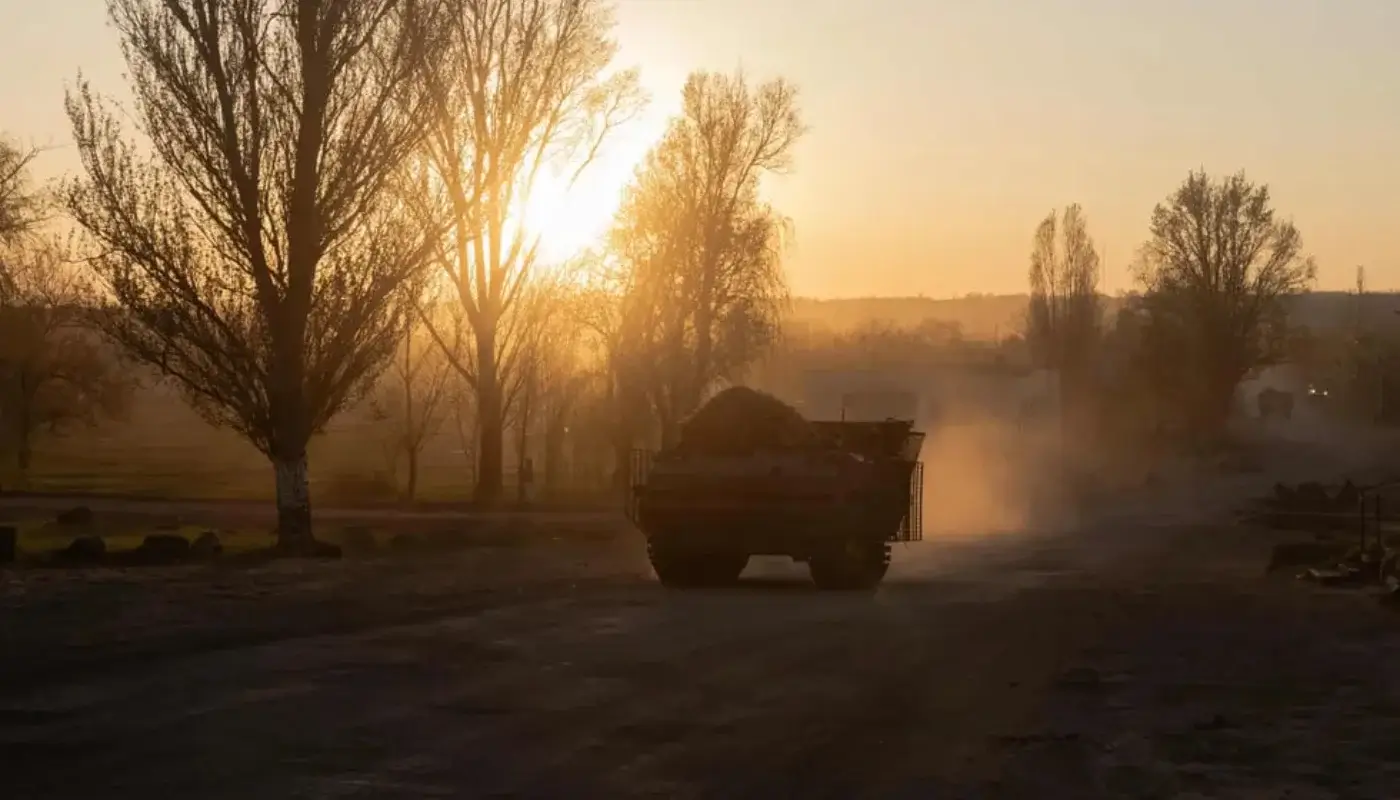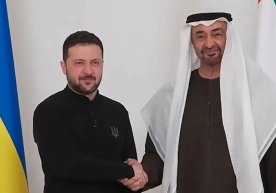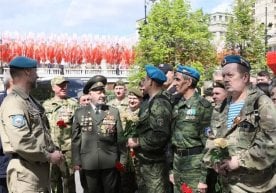Initial accusations from both sides about the violation of the Easter truce

Roman Pilipey / AFP / Scanpix / LETA
On April 20, the Russian side made its first accusations regarding the violation of the Easter ceasefire announced on April 19. The Russian Defense Ministry reported that Ukrainian Armed Forces attempted an attack in the areas of Sukhaya Balka and Bogatyr in Donetsk region. Moreover, according to the Russian military department, Ukrainian forces shelled positions of the Russian Armed Forces 444 times and carried out drone strikes 900 times, resulting in "civilian casualties and injuries."
At the same time, the ministry emphasized that all Russian troop groups strictly adhered to the ceasefire regime in the "special military operation zone" from 6:00 PM on April 19 and remained in previously occupied lines and positions.
Around 11:00 PM on April 19, Vladimir Saldo, the Russia-appointed governor of Kherson region (only a part of the region is under the control of Russian forces), also accused the Ukrainian Armed Forces of launching strikes during the ceasefire. According to him, drone attacks were recorded in Oleshky, Hola Prystan, and Kakhovka since 6:00 PM (from the start of the ceasefire announced by Putin). "At the same time, it is important to state directly: in several areas calm is prevailing, and no shooting is occurring," Saldo noted.
Additionally, on the morning of April 20, TASS news agency, citing operational services, reported at least three explosions in the city of Donetsk resulting from strikes.
Ukraine
In response to the ceasefire declared by Vladimir Putin, Volodymyr Zelensky stated that if Russia is indeed “ready for a complete and unconditional format of silence,” Ukraine will act “silence in response to silence, strikes to defend against strikes.” Additionally, he suggested that if a full ceasefire is genuinely established, it could be extended for another 30 days. “This will show Russia’s true intentions, because 30 hours are enough for headlines, but not for measures to build real trust,” Zelensky added.
According to a Ukrainian source cited by the BBC, on the evening of April 19, shortly after the Easter ceasefire declared by Putin began, the Armed Forces of Ukraine received an order to cease fire and document violations and, if necessary, return fire (CNN’s source also confirmed that such an order had been given).
In the following hours, Zelensky presented three reports from the Commander-in-Chief of the Armed Forces of Ukraine, Oleksandr Syrskyi, confirming violations — as of 22:00 on April 19, and as of 6:00 and 12:00 on April 20. According to the Ukrainian President, Russian forces continued shelling, using drones, and conducting military operations. “Putin’s Easter statements” were not observed at all in the territories of Kursk and Belgorod regions. In particular, from 18:00 to midnight on April 19, the Russian army carried out 387 shellings and 19 assault actions, and used 290 drones, Zelensky said. From midnight to 12:00, the Russian army had already conducted 26 assault actions, he later specified.
“We are documenting every violation of the promise of a complete ceasefire by the Russian side during the Easter holiday and are ready to provide relevant information to our partners. Either Putin does not have full control over his army, or this situation proves that Russia has no real intention to end the war and only seeks beneficial PR in the media. Luckily, at least there was no air raid alert,” Zelensky wrote.
Global Reaction
Analysts who spoke with The Wall Street Journal stated that the proposal for a short-term ceasefire was an “easy diplomatic win” for Putin and viewed it as an attempt to prevent the U.S. side from walking away from negotiations. “If it’s very short-term, it poses no real threat, but it helps him [Putin] portray himself as someone who sincerely desires peace,” said Tatiana Stanovaya, a senior fellow at the Carnegie Russia Eurasia Center in Berlin.
Russia announced the ceasefire “in the style favored by the Kremlin — as a secretly prepared special operation,” emphasized Alexander Baunov, another senior fellow at the Carnegie Russia Eurasia Center in Berlin. According to him, the ceasefire idea was never mentioned in any of Putin’s public speeches, and “its strictly unilateral nature was supposed to present Russia as the most peace-seeking party in the war,” he wrote.
According to Baunov, following threats from the U.S. side to exit the negotiation process, Putin “has not yet made a definitive decision on whether to be left without Trump or to continue attempts to use him for his own interests,” and the ceasefire “gives him an opportunity to delay resolving the issue.”
Putin’s Easter ceasefire statement was received “with caution” in Europe, writes Reuters. “First, we need to see the actual halt of [Russia’s] aggression and concrete actions toward a long-term ceasefire,” said European Commission spokesperson Anita Hipper, adding that if Russia “truly wants it,” it can stop the war at any time.
Initial accusations about violations of the Easter ceasefire have already come from both sides. Read “Zamin” on Telegram!
Ctrl
Enter
Found a mistake?
Select the phrase and press Ctrl+Enter 





















